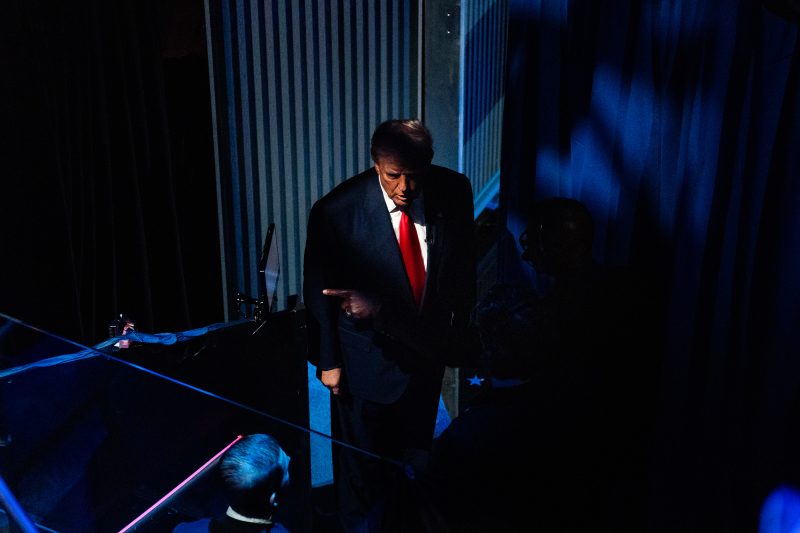In a world filled with diverse perspectives and beliefs, it is not uncommon to encounter individuals who perceive reality through a unique lens. One such individual who has garnered significant attention for his unconventional viewpoints is the former President of the United States, Donald Trump. Known for his outspoken personality and controversial statements, Trump’s version of reality often strays into the realm of imagination, leading to a portrayal of a world that both fascinates and frightens spectators.
Trump’s propensity for constructing an alternate reality is perhaps best exemplified in his rhetoric and communication style. Throughout his political career, he has demonstrated a remarkable ability to create a narrative that resonates with his supporters, regardless of its basis in fact. This narrative often revolves around themes of nationalism, populism, and a sense of victimhood, which serve to reinforce his followers’ beliefs and solidify their loyalty.
One of the key features of Trump’s imaginary world is his portrayal of himself as a larger-than-life figure, uniquely positioned to solve the nation’s problems single-handedly. This messianic self-image is further bolstered by his incessant need for adulation and praise, leading to a cult-like following among his supporters. In Trump’s world, dissent and criticism are met with scorn and derision, as he presents himself as the only source of truth and wisdom in a sea of misinformation and deceit.
Moreover, Trump’s imaginary world is characterized by a deep-seated fear of the unknown and the other. Throughout his presidency, he consistently stoked anxieties about immigration, trade, and global powers, painting a picture of a world under siege from external threats. This narrative of fear and suspicion served to unite his base against perceived enemies, while further isolating and demonizing those who disagreed with his worldview.
Despite the fantastical nature of Trump’s imaginary world, it is crucial to recognize the very real impact it has had on both American society and global politics. By blurring the lines between fact and fiction, he has created a polarized and divisive environment where objective truth is increasingly elusive. This erosion of trust in traditional sources of information, coupled with his persistent attacks on the media and other institutions, has left many feeling untethered and uncertain about the nature of reality itself.
In conclusion, Donald Trump’s imaginary and frightening world offers a stark reminder of the power of narrative and rhetoric in shaping public perception. By constructing a parallel reality that caters to his own ego and insecurities, Trump has tapped into a deep well of emotions and beliefs that resonate with a significant portion of the population. However, this alternate reality comes at a cost, as it undermines the very foundations of truth and reason upon which a functioning society depends. As we navigate the aftermath of his presidency and reflect on the lessons learned, it is imperative that we remain vigilant against the allure of simplistic narratives and seek to uphold the principles of honesty, integrity, and critical thinking in our collective pursuit of a more just and equitable world.
